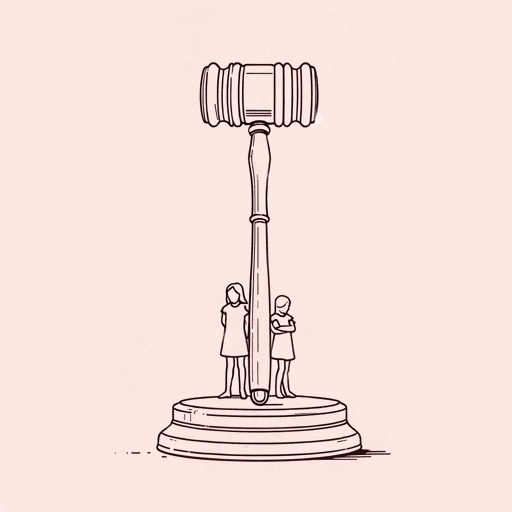19 pages • 38 minutes read
Thomas HardyThe Man He Killed
Fiction | Poem | Adult | Published in 1902A modern alternative to SparkNotes and CliffsNotes, SuperSummary offers high-quality Study Guides with detailed chapter summaries and analysis of major themes, characters, and more.
Summary and Study Guide
Overview
Thomas Hardy’s “The Man He Killed” (1902) is a scathing indictment of war’s senseless waste. It is addressed to a nation caught up in war fever by a poet uncertain of the purpose of war and uneasy over how completely battlefields dehumanize ordinary people into dispensable objects. The poem, written as a dramatic monologue, reveals the psychological damage warfare causes by allowing an ordinary soldier to speak of how, under any other circumstances, the man he killed on the battlefield might have been a friend he would meet with in a pub to share beers.
Hardy, who by 1902 was one of Victorian England’s most respected and recognized writers, regarded his nation’s commitment to the wildly popular Boer War in southern Africa as a crass way to secure access to the region’s diamond and gold reserves, and thus a template for how a nation ignores war’s tragic brutality in the name of mercenary gain. The poem, rendered in colloquial directness unadorned by ornamental or lyrical language, renders the illogic of war through the simple perception of a grunt soldier struggling to come to terms with how he has killed a complete stranger who was, in turn, intent on killing him. A central theme of the poem is that war makes strangers somehow into enemies, and thus sanctions what, under any other circumstance, would be regarded as cold-blooded murder.
Poet Biography
Thomas Hardy was born on June 2, 1840, in Dorset, England. His remarkably prolific career spanned six decades and would come to include more than 50 titles—novels, short story collections, and volumes of poetry. Hardy first came to London from his rural home in the remote wilds of coastal Dorset to study architecture and did not abandon that commitment until he was well into his thirties. Realizing a university education was beyond his means, Hardy, by necessity an autodidact, initially pursued poetry and found some success in limited publication chapbooks before he turned to novels in the late 1860s. His initial efforts reflected his sympathies for the difficult conditions and limited expectations of Victorian England’s working class, and particularly for the struggle to find meaning in marriage and family in a culture gradually retreating from the idea of a Christian God.
With the publication of Far from the Madding Crowd (1874), Hardy found his voice—at once tragic and comic, sympathetic and ironic—as he explored the dark world of England’s rural middle class. Over the course of the next two decades, Hardy solidified his reputation as England’s foremost novelist, publishing a series of what became landmark character-driven studies, among them The Return of the Native (1878), The Mayor of Casterbridge (1886), Tess of the D’Urbervilles (1891), and Jude the Obscure (1895).
As the century closed and Hardy faced growing criticism as his worldview become more pessimistic and his characters more wanton and less Christian, he returned to his first love, poetry. For more than a decade, Hardy published several collections of poems in which he boldly experimented with stanza forms, blank verse, and point of view all keyed to his sympathies for the difficult struggles of England’s working class. Among these publications was the collection Time’s Laughingstocks (1909), which included “The Man He Killed,” originally published in 1902 in London’s popular monthly magazine Harper’s Journal. This phase of Hardy’s long career climaxed with the publication of The Dynasts (1910), a monumental three-volume epic history, part verse, part drama, set in the Napoleonic Era, and a work for which Hardy was knighted.
After the death of his wife, Emma Gifford, in 1912, Hardy, himself nearing 70, married his secretary, Florance Emily Dugdale, and began an entirely new stage of remarkable productivity, the publication of six collections of new verse. With his death at age 87 on January 11, 1928, Hardy, a perennial candidate for the Nobel Prize (although his works were seen as too dark), was hailed as the most accomplished British writer of his generation. He was given his country’s highest recognition: His ashes were interred in Poets’ Corner in Westminster Abbey with some of the greatest figures in more than four centuries of British literature, among them Geoffrey Chaucer, Edmund Spencer, and Charles Dickens. Interestingly, Hardy directed that his heart would be buried separately, back home in his beloved Dorset.
Poem Text
“Had he and I but met
By some old ancient inn,
We should have sat us down to wet
Right many a nipperkin!
“But ranged as infantry,
And staring face to face,
I shot at him as he at me,
And killed him in his place.
“I shot him dead because—
Because he was my foe,
Just so: my foe of course he was;
That’s clear enough; although
“He thought he’d ‘list, perhaps,
Off-hand like—just as I—
Was out of work—had sold his traps—
No other reason why.
“Yes; quaint and curious war is!
You shoot a fellow down
You’d treat if met where any bar is,
Or help to half-a-crown.”
Hardy, Thomas. “The Man He Killed.” 1902. Poetry Foundation.
Summary
An infantry soldier speaks directly to the reader. His location is never clarified. Perhaps he has returned home from the military and is now addressing companions in a public tavern, reflecting on his experiences. Alternatively, he may still be stationed at war, facing the moral challenges of infantry alongside other similarly vexed soldiers, or even grappling with these experiences in isolation.
Whether he has returned home or is still in the field, the speaker, never given a name, looks back on a moment when he confronted an enemy soldier and shot him dead. The soldier, now puzzling through what has happened, suggests an alternate reality: Had he met that now dead soldier as a stranger “by some ancient inn” (Line 2) back home, the two might have hit it off, might have become quick friends, and might have shared “right many a nipperkin” (Line 4), a colloquial term for inexpensive ale.
But, the soldier realizes, positioned across a battlefield, “ranged as infantry” (Line 5) and now staring “face to face” (Line 6) across the imaginary line of combat, the speaker had shot the man dead, even as that man shot but missed him. The soldier reminds himself that, of course, the killing was justified and even necessary: The unknown man was somehow “his foe” (Line 10), a term generated and sustained only by the logic of war itself, which arbitrarily designated some men as compatriots, brothers-in-arms, and others as the enemy, deserving of killing.
The soldier considers how he does not hate the man, that the man he killed might have enlisted in his army for the same reasons the speaker enlisted—not for some grand patriotic ideal or xenophobic righteousness but rather because of a lack of gainful employment opportunities back home. If that was case, then they shared much in common. Facing similar economic hardships, they sold all their meager belongings, their “traps” (Line 15), and joined the military.
The soldier stops himself from pursuing that line of reasoning with a simplistic admonishment: “Yes; quaint and curious war is” (Line 17). However, he still ponders how he killed a man whom, had they met under any circumstance beyond the battlefield, he might have shared a drink with or been willing to lend money, say a “half-a-crown” (Line 20), to see him through a difficult stretch.
Related Titles
By Thomas Hardy

Ah, Are You Digging on My Grave
Thomas Hardy

At an Inn
Thomas Hardy

Channel Firing
Thomas Hardy

Far From The Madding Crowd
Thomas Hardy

Jude the Obscure
Thomas Hardy

Tess of the D'Urbervilles
Thomas Hardy

The Darkling Thrush
Thomas Hardy

The Mayor of Casterbridge
Thomas Hardy

The Return of the Native
Thomas Hardy

The Withered Arm and Other Stories
Thomas Hardy

The Woodlanders
Thomas Hardy
Featured Collections
African History
View Collection
Class
View Collection
Class
View Collection
Colonialism & Postcolonialism
View Collection
European History
View Collection
Memorial Day Reads
View Collection
Military Reads
View Collection
Psychology
View Collection
Sexual Harassment & Violence
View Collection
Victorian Literature
View Collection
Victorian Literature / Period
View Collection
War
View Collection

